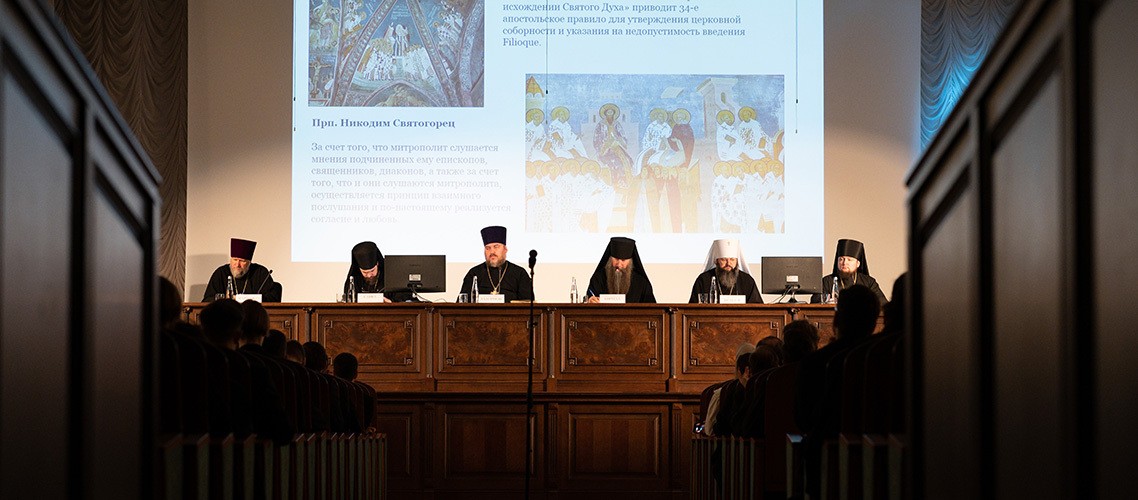
The Moscow Theological Academy held an annual “Pokrov” Conference
On October 12, 2022, the All-Russian Scientific and Theological Conference dedicated to the “Episcopal service and monasticism in the life of the Church (in honor of the 600th anniversary of discovering the relics of St. Sergius of Radonezh)” took place at the Moscow Theological Academy. The “Pokrov” Conference united church and state scientists, professors and teachers of higher theological educational institutions of the Russian Orthodox Church, representatives of the scientific communities and students. This year the conference coincides with the 600th anniversary of discovery the relics of St. Sergius of Radonezh. Also, it became a closing event in a series of scientific and theological discussions held at theological schools of the Russian Orthodox Church in 2021–2022.
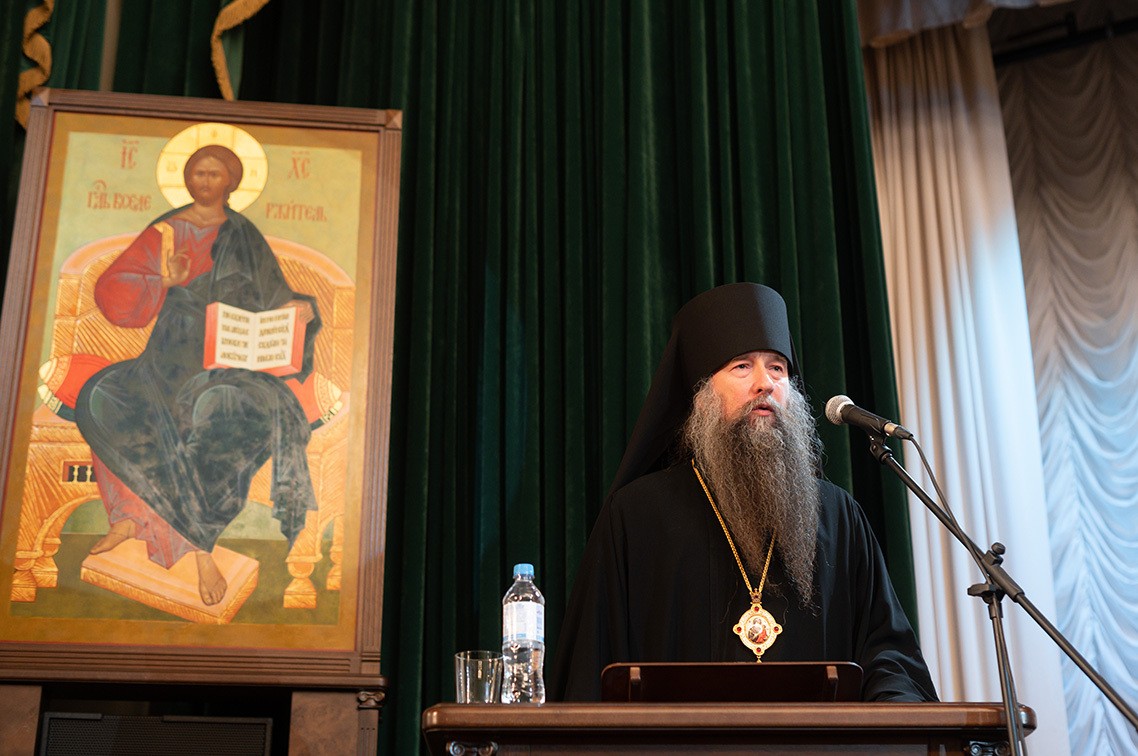
The Bishop of Zvenigorod Kirill, Rector of the Moscow Theological Academy, opened the conference with a welcoming speech:
“I am glad to welcome you all at our traditional “Pokrov” Conference on the eve of the dedication day of our Intercession Academic Church.
The topic of the current conference, “Episcopal Ministry and Monasticism in the Life of the Church,” is extremely important today. We are aware of problems raging the church life, especially at the relations between Local Churches. Unfortunately, politics seriously affects the situation and the church life. There are some difficult moments considering the church hierarchy, which has been of a great significance in the life of the Church and become a vital theme of numerous discussions at scientific and theological conferences. These problems have become especially relevant in the XX century. It is no coincidence that the PhD dissertation of the Primate of our Church, His Holiness Patriarch of Moscow and All Russia Kirill was dedicated to the hierarchical service in the Church.
Indeed, if we look at the texts of the New Testament and early Christian writings, we will see that the names of various ranks of the church ministry had been gradually developed. St. Polycarp of Smyrna, speaks of the Lord Jesus Christ: “He [Christ] became a deacon (διάκονος) for all.” Of course, in the Russian translation this text sounds different: “Christ became a minister for all.” In the original ancient Greek text there is a word “διάκονος”. Undoubtedly, in the epistles of the Apostle Paul we find places where he calls himself a minister, a deacon (διάκονος) (Col. 1:25). There are many examples in the texts of presbyters being called bishops. Moreover, the Apostle Peter called himself a co-presbyter (συμπρεσβύτερος) along with other primates of church communities (1 Pet. 5:1). There were, of course, other terms that were used to refer to the elders and primates of the early Christian communities.
I would like to draw our students’ attention to the topics of our conference. The reports connect to the current situation that you are going to face after your graduation.
I thank in advance all guests and speakers for their presentations..
Archpriest Alexander Zadornov, Associate Professor, Vice-Rector for Scientific and Theological Work at the Moscow Theological Academy, moderated a plenary session. Five reports touched on various issues of episcopal service in the Church and the evacuation of the relics of St. Sergius of Radonezh during the Second World War.
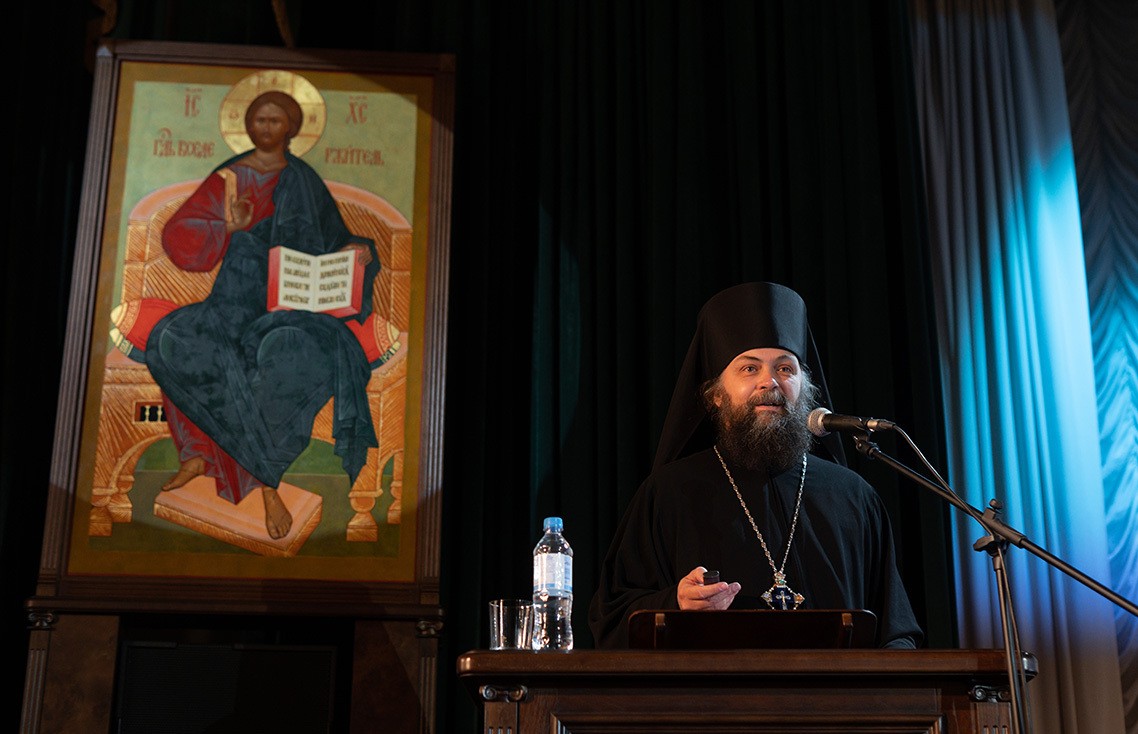
Hegumen Dionysius (Shlenov), Head of the MTA Postgraduate Department, gave his report on “Who is the head of the Church?”. He focused on some possible variations and key ideas about who is considered to be the head of the Church, based on numerous examples of patristic works.

The Metropolitan of Smolensk and Dorogobuzh Isidor, PhD in Theology, PhD in Law, Rector of the Smolensk Theological Seminary, gave his report on “A bishop with strong communist relations. Archbishop Sergiy (Larin) during the years of Khrushchev's persecution in 1958-1964”. He told about Archbishop Sergius’s extraordinary life of and his loyal attitude towards the Soviet authorities, which helped him to occupy important administrative positions in the Russian Church.
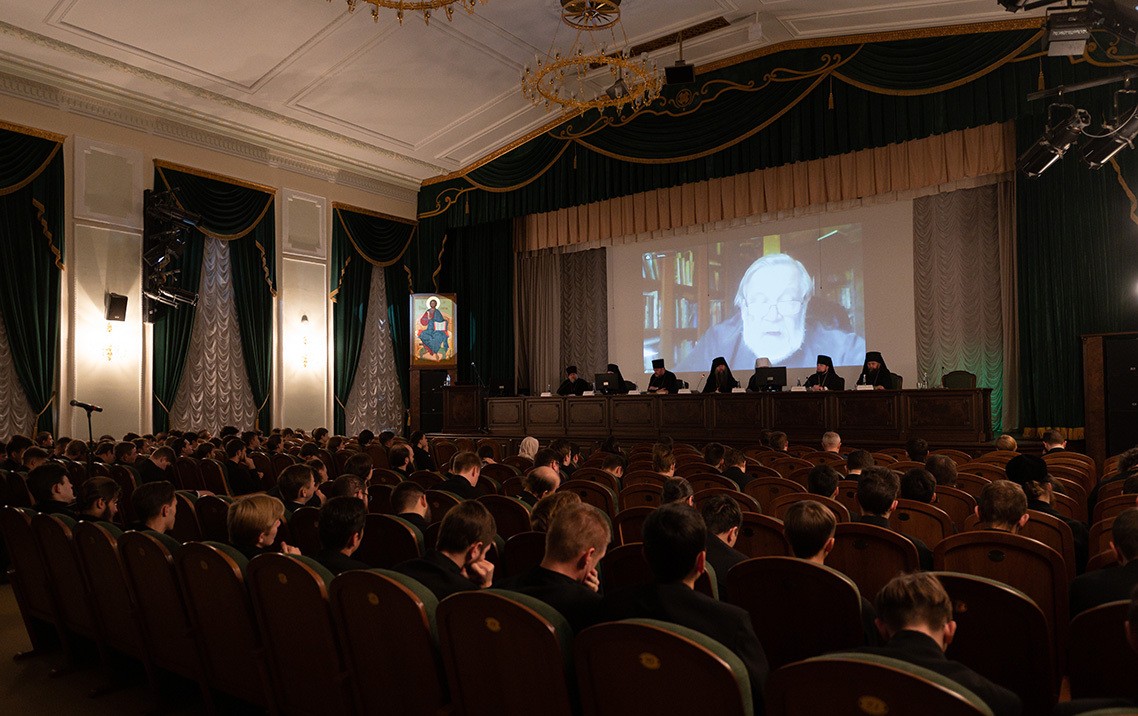
Professor Alexey Konstantinovich Svetozarsky, PhD in Theology, Head of the Church History Department at the Moscow Theological Academy, gave a report on “Bishops participating at the Local Council in 1945. A collective portrait”. In his report, Alexey K. Svetozarsky brought numerous facts from their biographies, thanks to which he tried to assess the spiritual and moral image of the episcopate of the time.

The Bishop of Istra Seraphim, Dr. of Theology, PhD in Historical Sciences, Associate Professor, Chairman of the Synodal Department for Youth Affairs, made a presentation on “The Hieromartyr Archbishop Seraphim (Ostroumov) and the Moscow Theological Academy: the formation of a monastic and episcopal image.” Bishop Seraphim described the years spent by Archbishop Seraphim (Ostroumov) at the Moscow Theological Academy.
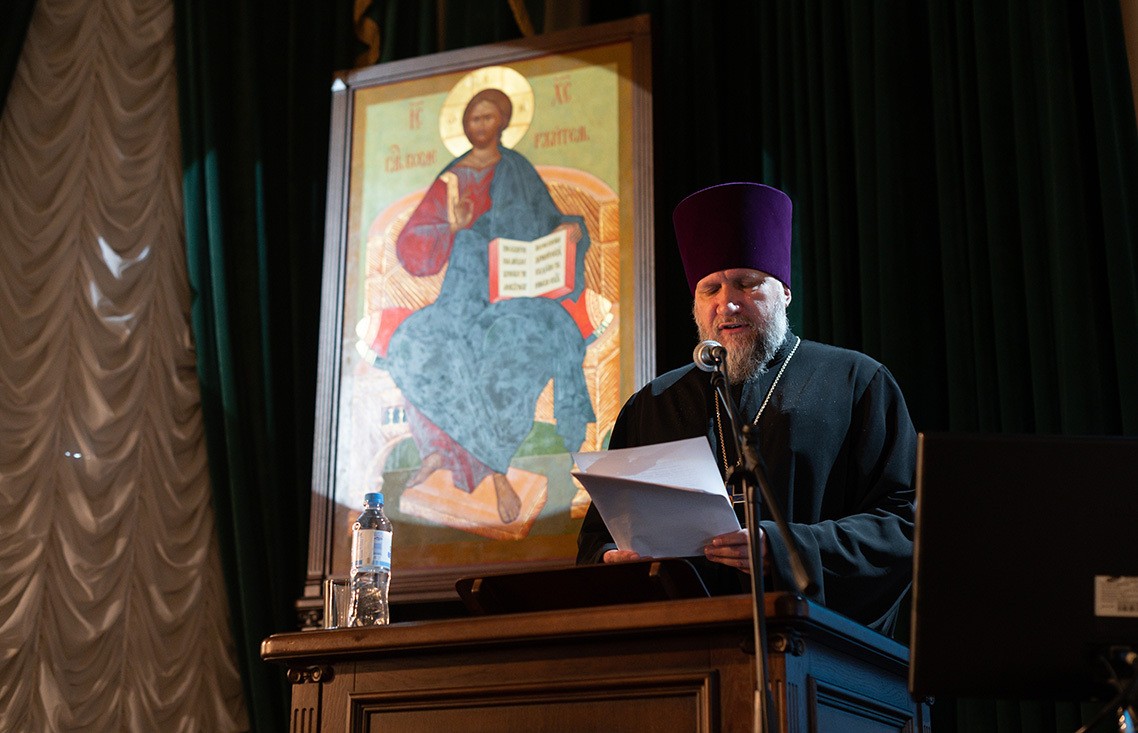
At the end of the plenary session, Archpriest Alexey Marchenko, Dr. of Church History, Professor, Head of the Department of Doctoral Studies at the General Church Postgraduate and Doctoral Studies named after Saints Cyril and Methodius, gave a report on “The Evacuation of the Relics of St. Sergius of Radonezh and the Sacristy of the Holy Trinity-St. Sergius’s Lavra in the Urals during the Second World War”. Archpriest Alexey Marchenko focused on a role in the study of this topic by Archimandrite Andronik (Trubachev), a former Professor of the Academy.
There were also ten afternoon thematic sessions in Theology, Biblical studies, Christian writing, Church History, Canon Law, Liturgy and Christian Art.
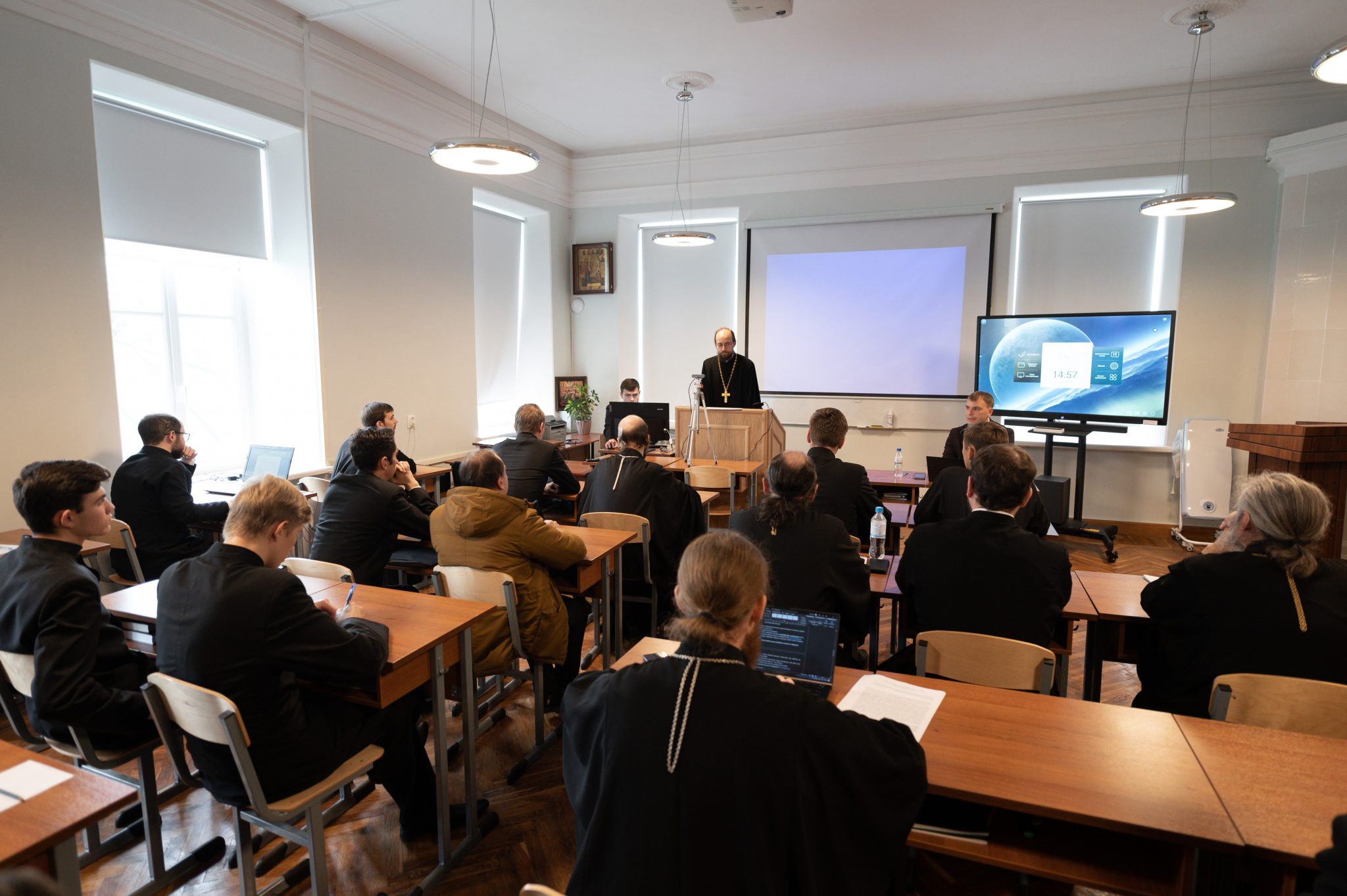
Two sections focused on topics of modern theological science questioning some problematic aspects of the History of theological thought. Participants from different church and state educational institutions presented the results of their researches.
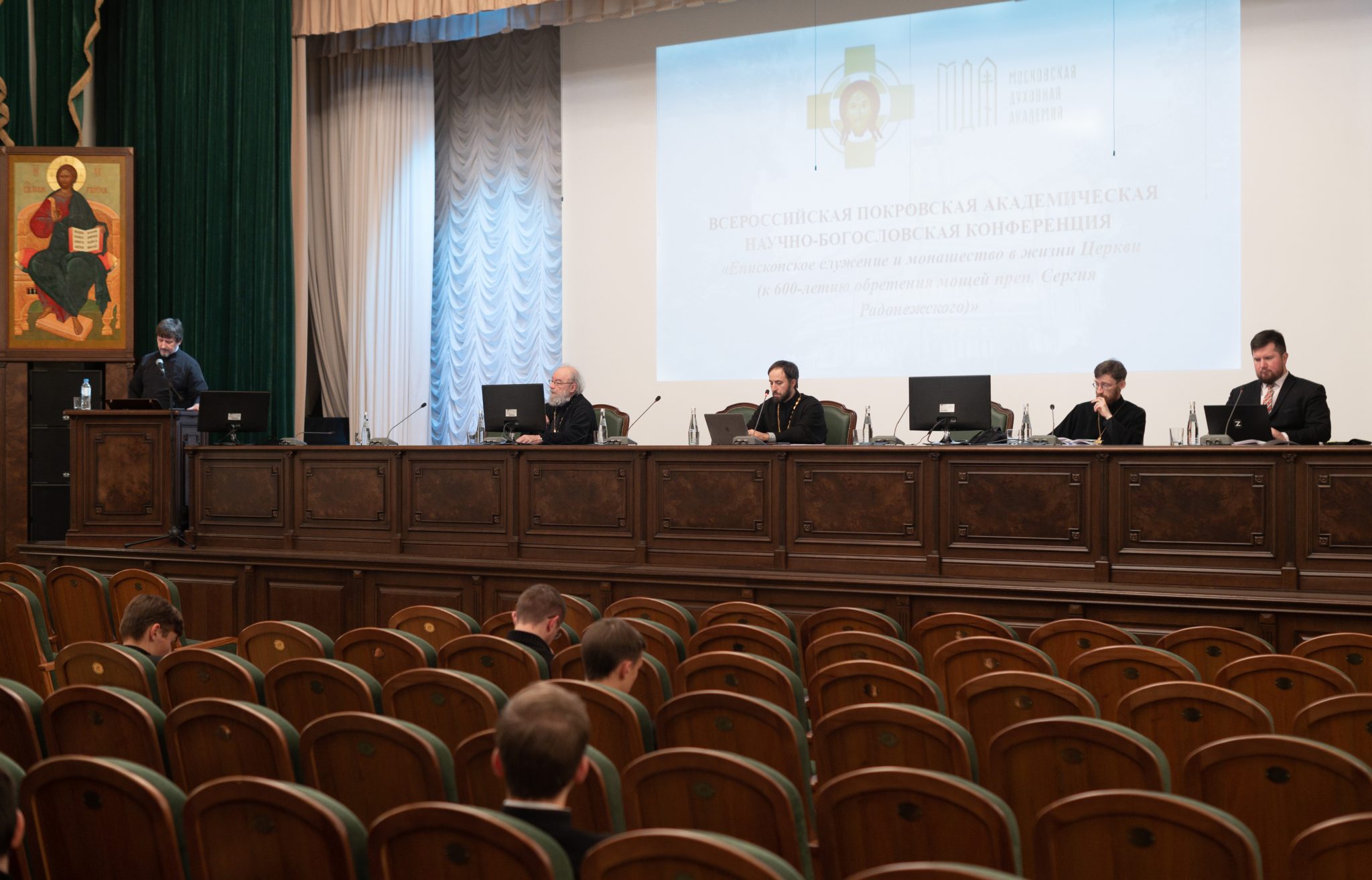
Two sections on Theology were moderated by Professor Priest Stephan Domuschi, Head of the Orthodox Theology profile at the Moscow Theological Academy, and Alexander Al. Solonchenko, Senior Lecturer of the MThA Theology Department. They included more than 20 reports on various topics from philosophical systems of Priest Pavel Florensky and Nikolay Berdyaev, the church policy of Emperor Zenon, the Western understanding of monasticism to modern issues such as the surrogate motherhood or the spiritual education in our times. Some speakers analyzed works of the holy fathers like St. Theophan the Recluse or St. Luka (Voyno-Yasenetsky), who left an extensive written heritage in Russia.
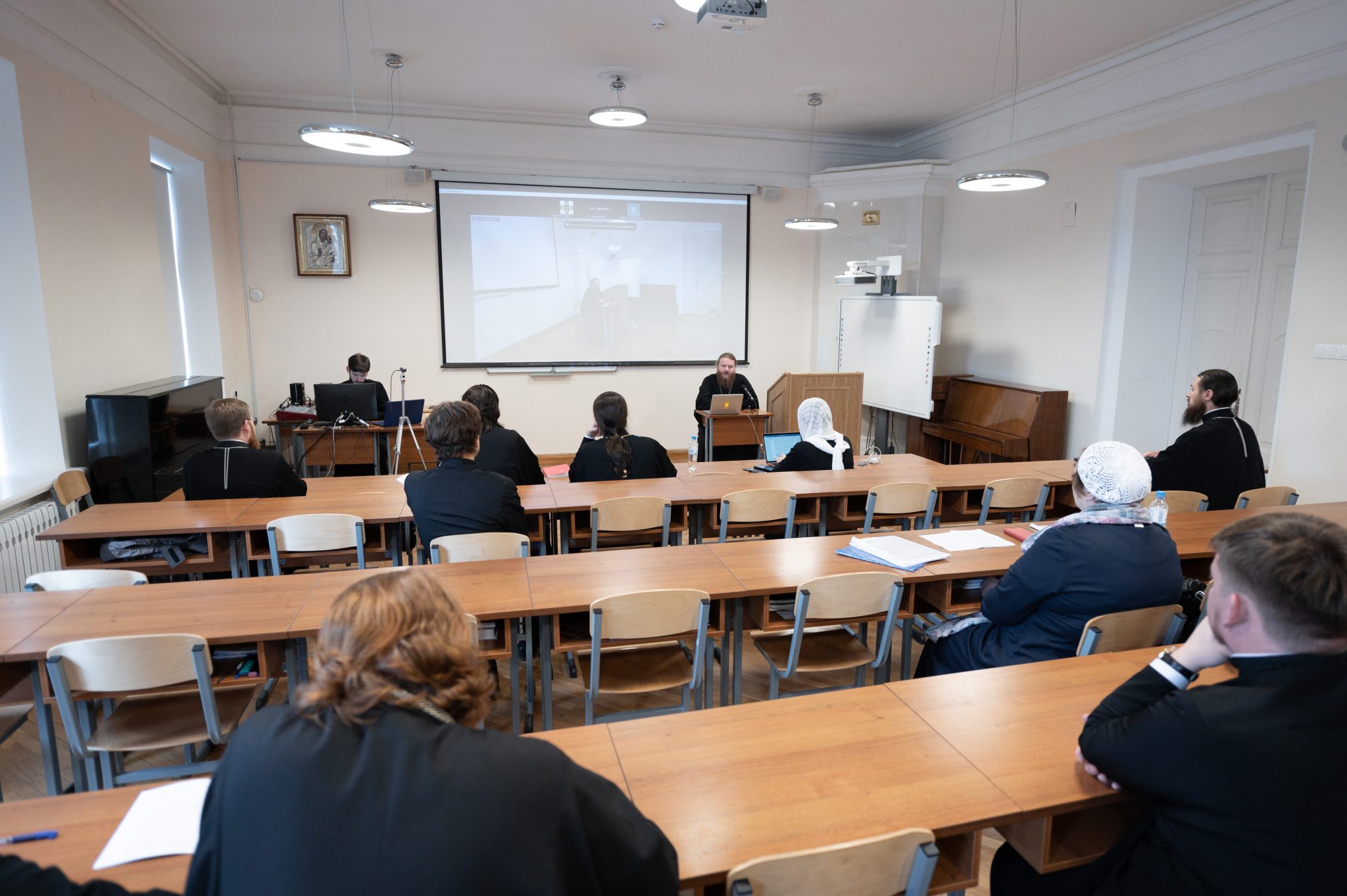
Natalia Sergeevna Semyonova, Associate Professor at the MThA Department of Church and Practical Disciplines, moderated the section on Canon Law. The reports touched upon the influence of political discourse on the Church affairs in Europe and the Baltic countries as well as the status of women in the Church and their positions in church service.
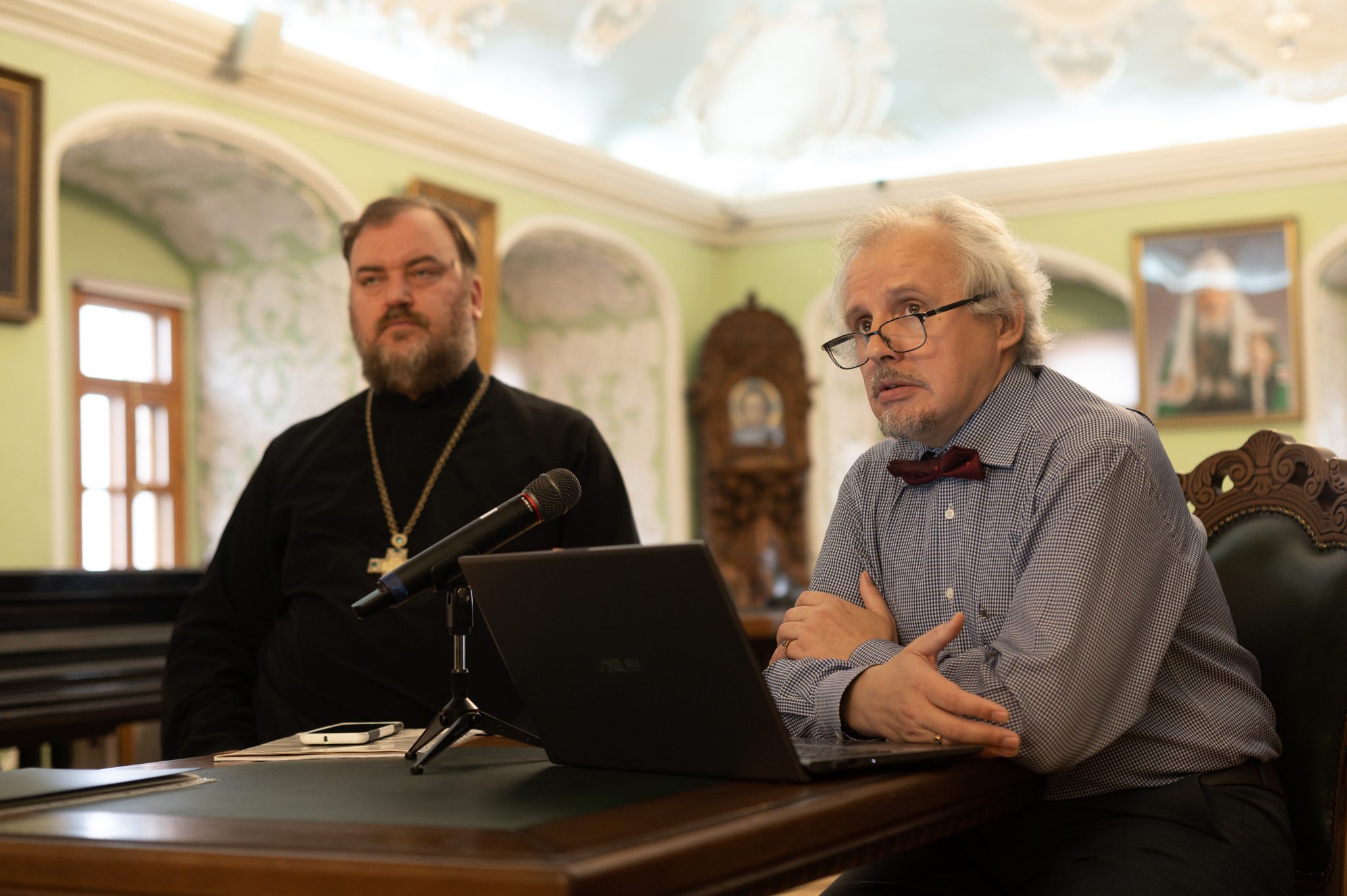
Some last topics considered the interaction between the Church and society regarding the question of principles and possibilities of the Orthodox mission on the Internet.
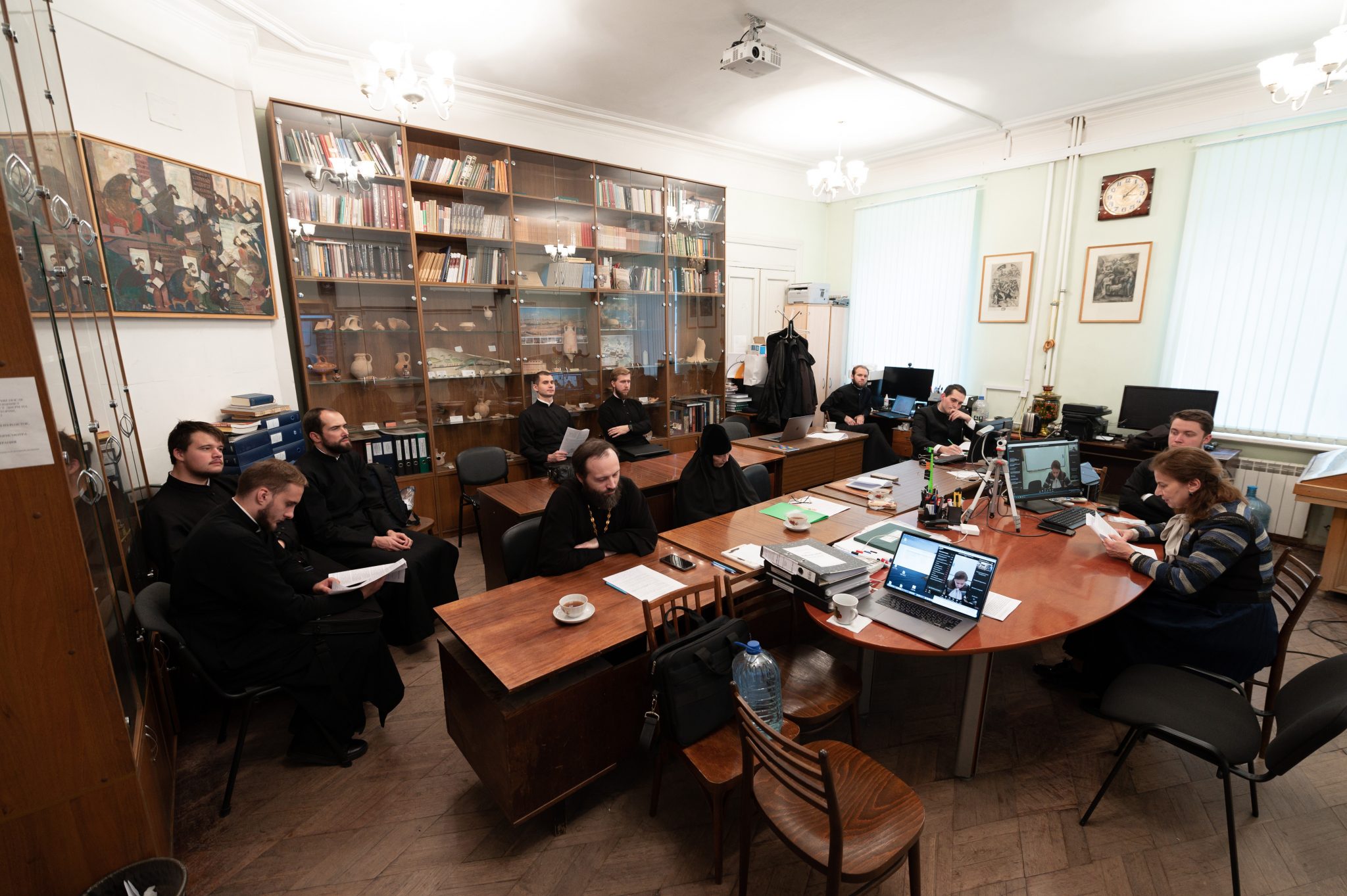
Priest Sergiy Fufaev, a researcher at the Biblical Studies Department, moderated the section "Exegesis and Hermeneutics of the Holy Scripture". The participants presented their researches illustrating the difference between exegetical and hermeneutic approaches in interpreting and revealing the meaning of the sacred text.
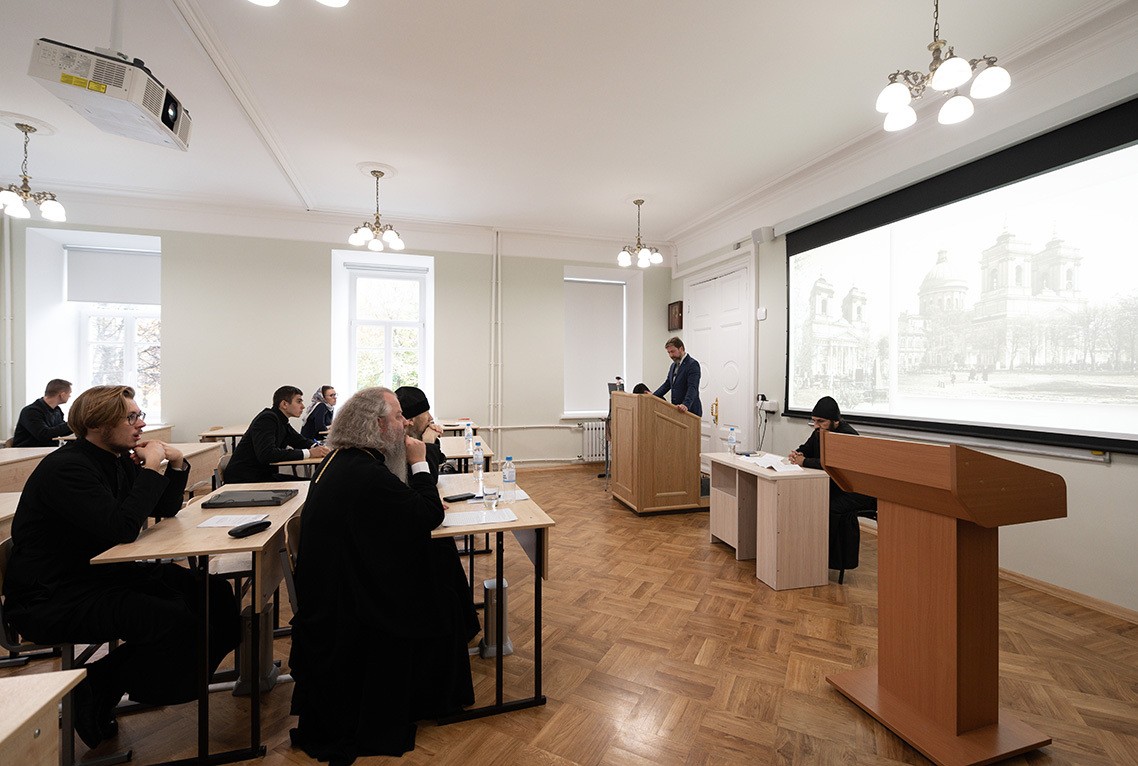
Three sections on Church History presented a wide range of historical topics. The sections were moderated by teachers and assistants of the Church History Department, Hierodeacon George (Ramazyan), Priest Vasily Ravlik and Deacon Vyacheslav Masin. First of all, the speakers considered the episcopal service in the Church, which was the main conference theme. The participants recalled the biographies of bishops who lived in the XX century. Hegumen Gerasim (Dyachkov), Associate Professor of the Department of Church History, shared his vivid memories about Metropolitan Serapion. A. M. Odintsov spoke about the role of Bishop Gregory (Chukov) and Bishop Eleutherius (Vorontsov) in the post-war restoration of the Trinity Cathedral of the Alexander Nevsky Lavra. The speaker referred to an exhibition dedicated to the restoration of the Trinity Cathedral, which had been installed at the hall of the Academy.
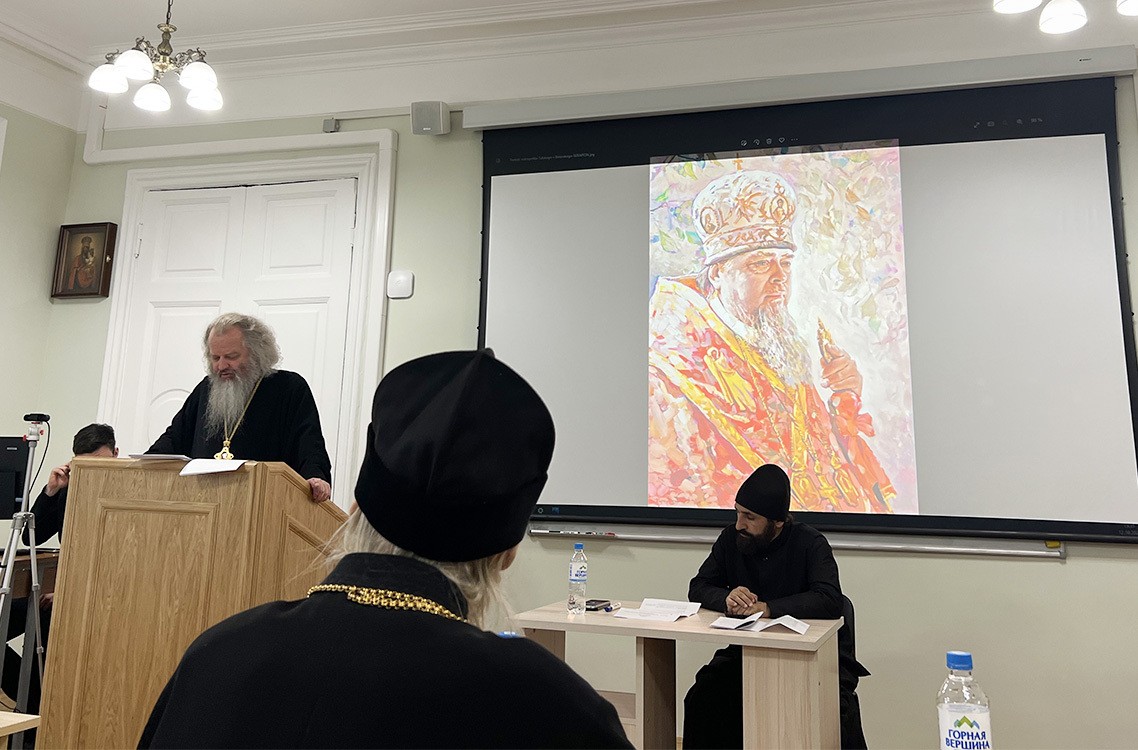
Lyudmila V. Prokhorenko, a senior lecturer of the Philology Department, moderated the section on Christian literature. It brought together researchers of Philology, Patrology, Philosophy and Christian literature. Topics touched upon the role of philosophical schools in the III century, the disputes on the role of St. John Chrysostom and St. Theophan the Recluse in the doctrine of monastic wisdom. Also, there were reports on literary criticism, linguistics and different areas of philological science.
Irina Mikhailovna Zubrenko, a researcher at the Department of History and Theory of Church Art, moderated the section on "Church Art". Particular attention was paid to the canon in the images of holy monks as well as the influence of a Russian monastic tradition on the Church Russian art. One of the reports considered a memorable date, the145th anniversary of His Holiness Patriarch Alexy I (Simansky), thanks to whom the Church and Archaeological Cabinet at the Moscow Theological Academy was restored in 1970.
Hieromonk Dalmat (Yudin), Associate Professor, a researcher at the Department of Church and Practical Disciplines, moderated the "Liturgy". Most of the reports touched upon the liturgical practice of the Russian Church and the traditions of the Slavic worship in the XIV-XX centuries. In addition, two presentations considered the teaching issues and methodology of liturgical science in the Russian tradition.

The topics aroused great interest, questions and lively discussions among the participants who were present both in person and online.
For more information about the speakers and a range of topics, please, follow the link:
MThA Press Office
